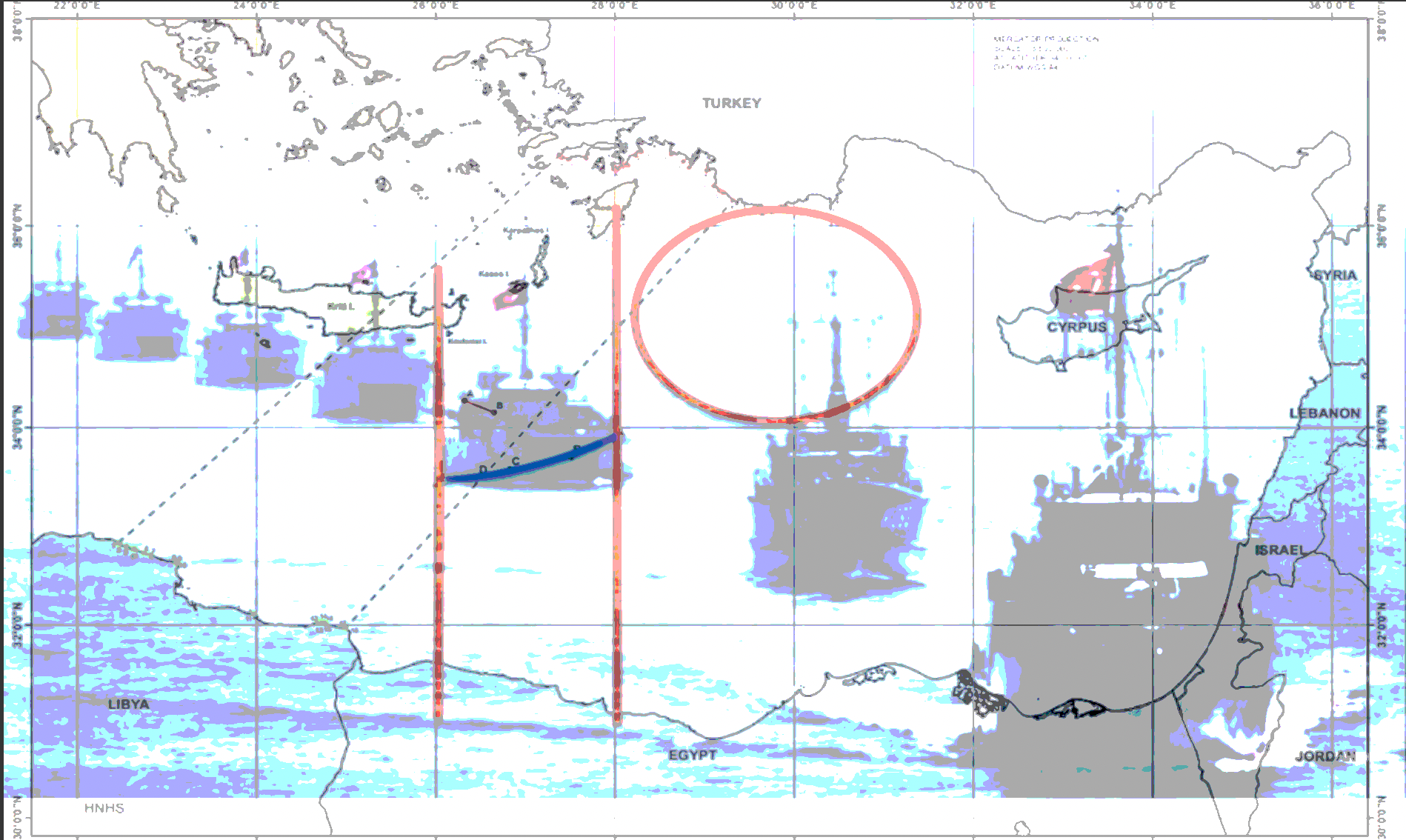- – What concessions have already been made
- – What could be the issues that Greece is “discussing”?
- – The “trap” proposal for the demilitarization of islands
- – Will Thrace be on the table as it was in 2004?
- – “Brake” on Greek armaments
By Paris Karvounopoulos
The handshakes and smiles between Mitsotakis and Erdogan in Vilnius, Lithuania, are not the beginning of the road to the “Greek-Turkish agreement”. It was a crucial milestone in a process that has been underway for a long time. As far as the Mitsotakis government is concerned, the beginning of the thread starts in Berlin in mid-July 2020. It was there that the first secret Greek-Turkish meeting under German tutelage took place. Merkel’s foreign policy adviser, Jan Hecker, was the “supervisor” of the meeting of Ibrahim Kalin, who was then Erdogan’s spokesman and is now in charge of MIT, Turkey’s secret intelligence agency. Opposite him sat the then-diplomatic adviser to Kyriakos Mitsotakis, Eleni Suranis.
Since that secret meeting in Berlin, developments have been moving at breakneck speed for diplomatic standards. The “Aegean crisis” followed, with the Turkish research vessel Oruc Reis sailing for 82 days in waters of Greek interests. It cannot escape notice that the Greek-Turkish crisis started on July 21, 2020, with Heiko Maas, the German Foreign Minister at the time, being in Athens and meeting the Prime Minister and the then Foreign Minister Nikos Dendias.
With Turkey pushing militarily in the Aegean and Eastern Mediterranean, the Greek government proceeded to sign two maritime zone agreements without delay. One with Italy and one with Egypt. The agreements are being touted by the media as huge diplomatic successes. Especially the second one with Egypt is presented as the ultimate ‘antidote’ to the Turcolibian memorandum.

Only when the maps of the Greek-Egyptian agreement were published, those who know the basics of geopolitics froze. The area east of the 28th meridian, which includes Kastellorizo, remained … undefined. Moreover, the agreement with Egypt literally “slashes” the influence of large Greek islands such as Rhodes and Crete. And the Turks, unfortunately, were quick to confirm this.
In a letter sent by Turkey’s Permanent Representative to the UN to the Secretary-General dated August 24, 2020, he writes:
“Even Crete, the fifth largest island in the Mediterranean, with an area of 8,300 square kilometers, has received reduced jurisdiction based on the EEZ delimitation agreement between Athens and Cairo. However, the persistent Greek claim provides for full sovereignty for Kastellorizo, even though it would be granted only a coastal zone, but no continental shelf and EEZ at all, according to the jurisprudence of the relevant international courts.”
And this letter of Turkey’s full acceptance of what we signed with Egypt was kept out of the spotlight in Greece. It is also no coincidence that during the 82 days of the Oruc Reis’ voyage, both the research vessel and the warships that accompanied it fully respected the limits provided for in the Greek-Egyptian agreement.
The former Foreign Minister Nikos Kotzias had from the first moment of publication of the maps of the Greek-Egyptian agreement its “grey areas”:
“The agreement on the EEZ with Egypt does not include the western part of Gaidouronisi or Chrysi in the prefecture of Lassithi. It leaves out the 28th to the 32nd meridian, which includes Kastelorizo. It gives limited influence on large Greek islands such as Rhodes, Karpathos, and Crete, as well as “of course” on Kassos. Finally, it does not give any influence, yes, unbelievable but true, to the islands south of Crete, such as Koufonissi, which have an independent economic life.”
Nikos Kotzias pointed out other important weaknesses of the agreement with Egypt

To put it simply: the Greece-Egypt agreement was the perfect “blueprint” for a Greek-Turkish agreement that the US, Germany, and all Western allies, in general, are seeking. The additional 200 nautical miles of EEZ that Kastellorizo gives to Greece were “erased” and thus “vindicated” years later, the former Turkish Foreign Minister Ahmet Davutoglu, who had declared that Kastellorizo “is an island … somewhere in the Mediterranean”!
And demilitarization?
The division of the Aegean that Ankara is seeking includes the issue of the demilitarization of Greek islands. The Greek government, like all governments to date, states that it is not even discussing this issue. However, the Mitsotakis government has created a climate of suspicion on this issue.
On the occasion of the war in Ukraine, the government decided to send Russian BMP-1 tanks to Kyiv. It publicly pledged to replace “every single one of them with German armored vehicles”, slightly younger in operational age. It never did. The few German Marder that came to Greece did not go to any island and are in Xanthi. Not even in the front line of Evros.
Yet the government still maintains its stance that it will not discuss the demilitarization of islands under any circumstances.
However, for many years now, a proposal insidious to Greek interests has been circulating from time to time.
The proposal calls for the Turks to withdraw the Aegean Army and for Greece to proceed with the demilitarization of its islands.
Many have responded negatively to this dubious proposal but the response of an officer who fought in Nicosia in 1974 is significant. As is well known, the Turkish invasion of Cyprus in 1974 came after the Athens junta had withdrawn the Greek division in 1967. Lt. Dimitris Aleuromagiros categorically rejects the proposal promoted by the Turks through “Western allies”, explaining that “it is obvious that any disbanding or withdrawal of the 4th Army will in no way reduce Turkey’s military readiness and aggression against our islands, while any withdrawal of our forces from the islands, whose deployment required a lot of time, leaves them virtually defenseless, since in the event of a crisis the time required for reliable defensive resettlement is many times longer than the minimum time required for Turkish troops to board their landing craft for a direct attack against our islands… “.
Honorary Chief of Naval Staff Admiral Kosmas Christides points out that it is a wonder why the Greek side does not use the Turkish position for the militarization of the islands, as is evident from official Turkish documents:
“The right of Greece to arm Lemnos and Samothrace was recognized by Turkey, also in accordance with the letter addressed to the Greek Prime Minister on May 6, 1936, by the then Turkish Ambassador in Athens Roussen Esref, following instructions from his Government. The Turkish Government reiterated this position when the then Foreign Minister of Turkey, Rustu Aras, addressing the Turkish National Assembly on the occasion of the ratification of the Montreux Convention, unconditionally recognized the legal right of Greece to establish troops in Lemnos and Samothrace, in the following statements: “The provisions relating to the islands of Lemnos and Samothrace, which belong to our neighboring and friendly country Greece and which had been demilitarized in application of the Lausanne Convention of 1923, have also been abolished by the new Montreux Convention, and this pleases us greatly” (Journal of the Proceedings of the Turkish National Assembly, Vol. 12, July 31/1936, p. 309)”.
“The Greek paradox”...
One of the issues that are bound to be raised by Turkey, but also by Americans and Europeans, is what we are used to calling the “Greek paradox”. That is the 4 nautical mile difference between Greek airspace and territorial waters. Since the 1930s Greece has claimed 10 nautical miles in the air and 6 at sea. Until 1974 Turkey had not raised any issue at all. Since the invasion of Cyprus, it has constantly raised the issue not only in words but in deeds. The Turks are constantly flying within this 4 nautical mile zone and do not consider themselves to be violating Greek airspace. Will Greece agree to reduce its airspace by 4 nautical miles or will it dare to extend its territorial waters, even up to 10 nautical miles? In the current context, it seems that reducing our airspace to 6 nautical miles will be the first retreat that the Mitsotakis government will have to explain.
Thrace is also on the table
Erdogan himself on the flight back from Vilnius told Turkish journalists that he raised the issue of Thrace and muftis with the Greek prime minister. The Greek government did not officially deny this but through “diplomatic circles”. History shows that the issue of Thrace has always been high on Turkey’s agenda and it is unlikely that Turkey has forgotten about it now. Ambassador Emeritus George Aifantis recalls what happened in 2004 when the Simitis government was ready to sign an agreement with Turkey. The Turks raised the issue of Thrace at the last minute
A brake on armaments?
With the new facts in the Greek-Turkish relations and in the economy, it seems that the notorious “rearmament” of the country, which has so far cost 15 billion euros, is now “braking”. The speech of the new Minister of Defence Nikos Dendias in the Parliament on the government’s programmatic statements sent the first message.
The reinforcement of the fleet will be left unfinished since the corvette program has been “stalled”. Dendias referred only to the building of three Belharra frigates, leaving open the possibility that Greece may exercise its right to order one more. He did not talk about any other armament program apart from the apparently “NATO” obligation to buy F-35 aircraft.
Many “do-gooders” have been quick to suggest various solutions of “used” hardware from the US, such as the US frigates for which Forbes called on the US Navy to …sink them because of their insurmountable technical problems. Some people want to load them onto the Greek Navy. (The article from Forbes here: www.forbes.com)
Is there any chance of reversing the course towards the “solution” that the Americans seem to want to impose on us first and foremost? Blinken’s visit to Greece and Turkey just before the elections seems to have been a catalyst. Will the US intervene and how?
The question that remains to be answered is whether what is being launched in Greek-Turkish relations can be accepted by Greek public opinion. Is it ready to accept concessions on an issue like the Aegean?










Discussion about this post